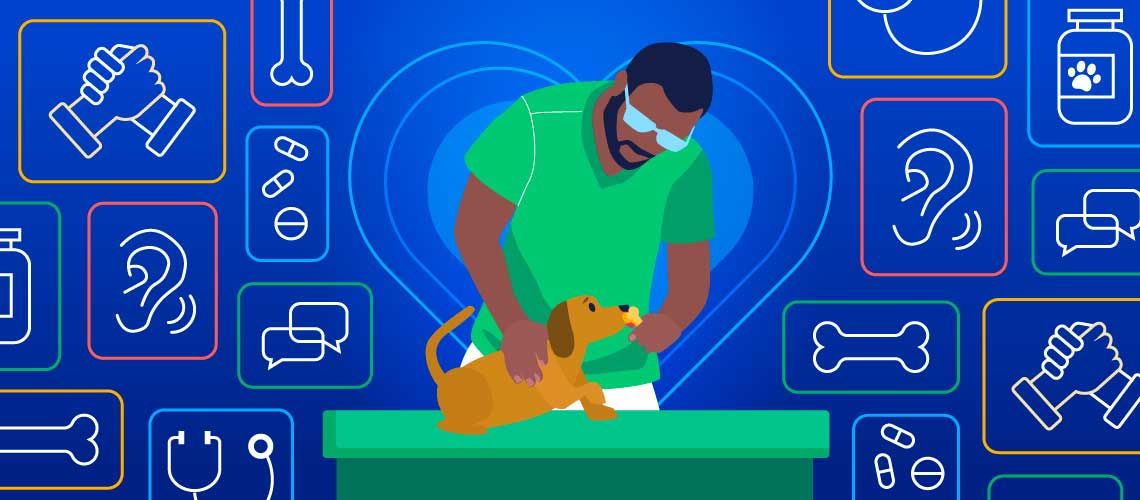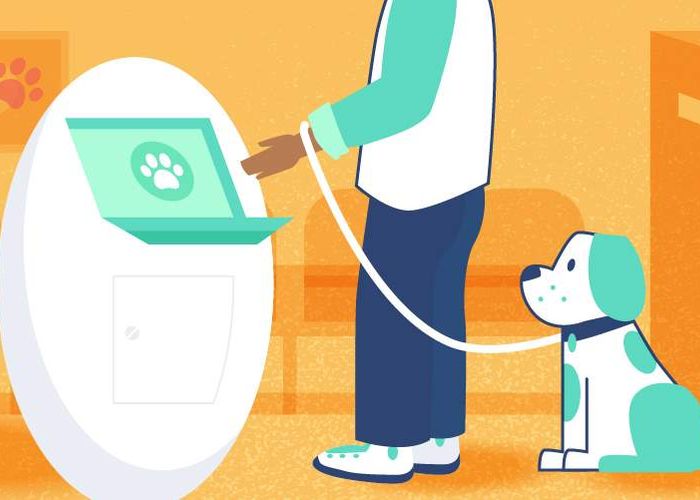

How To Help Vet Techs Build Stronger Communication Skills
Veterinary technicians are multi-talented team members who expertly handle patients and showcase clinical skills in the treatment area, while also compassionately connecting with clients in exam rooms. They serve as liaisons between veterinarians and pet owners, and must cultivate a range of interpersonal skills to communicate effectively with both groups.
Vet techs with strong interpersonal communication skills can effectively comfort worried clients, manage stressful situations, and foster a positive and collaborative work environment. Veterinarians and practice managers play a crucial role in helping their veterinary technicians develop and strengthen these invaluable skills. Here are practical strategies you can apply now to support your techs better as they support clients.
Why Do Interpersonal Skills Matter?
Veterinary technicians play a key role in facilitating communication between clients and veterinarians. According to a study published in the Canadian Veterinary Journal, clients are more involved in decision-making about their pets when they communicate with veterinary technicians, in addition to the veterinarian.
Veterinary technicians interact directly with clients and team members, relaying important information during sometimes emotionally charged and challenging moments. In communication with clients, veterinary technicians provide empathy, clarify clinical information, reinforce recommendations, and serve as a trusted point of contact.
That's why interpersonal skills are foundational to this role. Strong communication skills are essential for techs to support clients and veterinarians effectively.
Key Interpersonal Skills for Veterinary Technicians
Honing a range of interpersonal skills can help veterinary technicians excel at communicating with team members and clients. For some, interpersonal skills may be innate, while others may require support. Below, we'll explore a range of critical interpersonal skills for your tech team and how leaders can foster growth in this area.
Active Listening and Empathy
Active listening is a communication skill that encourages empathy by focusing on absorbing what the client shares through their body language. Active listeners fully engage with a client through nonverbal and verbal responses, including maintaining eye contact, adopting an open posture, nodding to show interest, and responding thoughtfully when appropriate. This reflects understanding and empowers clients to share freely.
Vet techs who practice active listening build meaningful client connections, as they help clients feel heard and understood in conversation. Still, active listening is different from simply hearing what someone has to say and responding with a boilerplate response. Like all skills, it's never a bad idea to offer refresher training for your techs.
Managers can coach active listening by:
-
Communicating: Encourage technicians to repeat or paraphrase client concerns.
-
Demonstrating: Model active listening in daily interactions with team members.
-
Practicing: Role-play potential situations to practice active listening techniques.
Staying Cool Under Pressure
Veterinary settings can be stressful and fast-paced. Often, vet techs have to communicate less-than-ideal news to clients who are overwhelmed or in emotional distress.
To perform their jobs effectively, technicians must maintain a professional demeanor. Clear, calm communication during a crisis helps the entire team effectively navigate emergencies and keeps clients assured that their pet is in the best-possible hands.
Managers can help techs navigate high-pressure situations with ease by:
-
Role-playing: Simulate high-stress scenarios through drills to prepare techs for emergencies.
-
Pausing: Encourage techs to pause and gather their thoughts before responding to tense situations.
-
Supporting: Offer immediate feedback after challenging real-life scenarios, highlighting what went well, and identifying areas for improvement.
Team Conflict Resolution
Veterinary techs don't just interact with clients. They must also collaborate successfully in often small and tight-knit teams. This makes communication and interpersonal skills extra important. Even the most collegial teams may eventually face conflict. As such, techs must learn to navigate disagreements constructively.
Managers can help veterinary teams resolve conflicts by:
-
Providing support: Empower veterinary technicians to assess whether they can resolve a conflict internally or need additional assistance, based on their comfort level.
-
Modeling language: Placing blame only escalates existing conflict. Instead, practice resolution-oriented techniques, like using "I" statements ("I feel concerned when...").
-
Offering transparency: Ignoring conflict won't resolve it. Create a culture where team members engage in open, results-oriented dialogue.
Coaching and Development Strategies
Interpersonal skills often develop over time with support from management through regular training sessions that include hands-on practice, role-playing, and demonstrations. Ongoing coaching and feedback are crucial to encourage individual and team growth.
Here are a few coaching strategies to try:
-
Schedule training: Book routine training at regular intervals to keep interpersonal skills top of mind. From a logistical standpoint, short and focused sessions fit into busy days and can be more effective than infrequent, lengthy trainings.
-
Offer real-time feedback: The best time to support learning is in the moment, not days or weeks later. If you observe a tech handling a tough conversation well or struggling with an interpersonal interaction, privately address the situation sooner rather than later.
-
Use coaching frameworks: There's no need to reinvent the wheel. Consider using an established coaching model, such as GROW (Goal, Reality, Options, Way forward), during one-on-one check-ins. This structure can guide techs in self-reflection and empower them to take ownership of their development.
Continuing Education for Veterinary Technicians
Techs can refine their overall interpersonal communication skills through external programs, such as in-person and online vet tech education lectures and courses. Encourage vet techs to find a course that fits their needs and preferences, then provide them with guilt-free time off to pursue it.
Continuing education opportunities that focus on specific subjects are available from many different veterinary organizations. Some vendors also offer educational opportunities that even provide CE credits. Here are a few options to start the search:
-
IntroVet: An online course titled "Communication and Conflict Resolution" focuses on helping address the real-life challenges of communicating in busy veterinary settings.
-
Uncharted: The "Exam Room Communication Toolkit," led by Dr. Andy Roark, is an on-demand course that includes short video modules and a facilitation guide to help teams practice difficult conversations in the exam room.
-
MentorVet Tech Program: This structured mentorship program, tailored to veterinary technicians, guides participants through modules on communication, conflict resolution, and managing stress in veterinary practice.
Veterinary leaders may also need guidance. Managers can turn to outside sources to learn to empower their techs and create resilient teams with strong skills in and out of the exam room. Industry organizations and accreditations that support leaders include the AVMA Practice Management hub, Veterinary Leadership Conference (VLC) sessions, and VHMA Training Expert Certificate.
Elevate Veterinary Technician Roles
Interpersonal skills can turn routine visits into exceptional client experiences and transform disjointed coworkers into effective, cohesive teams. Veterinary technicians walk a fine line of communication each day, and those who can do so effectively and with empathy handle challenging situations more successfully and build strong relationships.
Veterinary leadership should recognize the crucial nature of "soft skills," like communication, in veterinary medicine and invest in veterinary technician development that extends beyond clinical tasks. Committing to your vet techs' professional growth ensures they thrive in their roles and enables your practice to consistently deliver compassionate, high-quality care.







